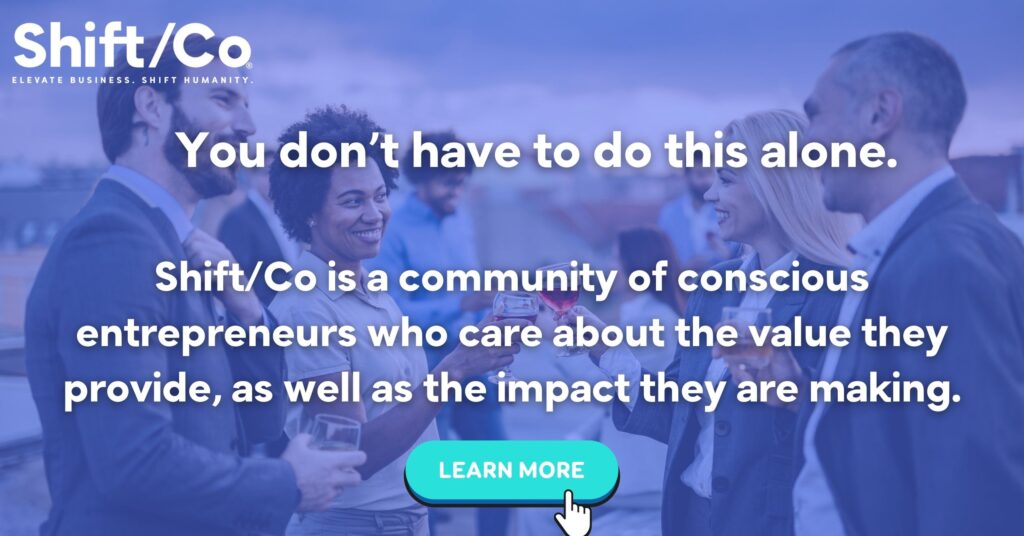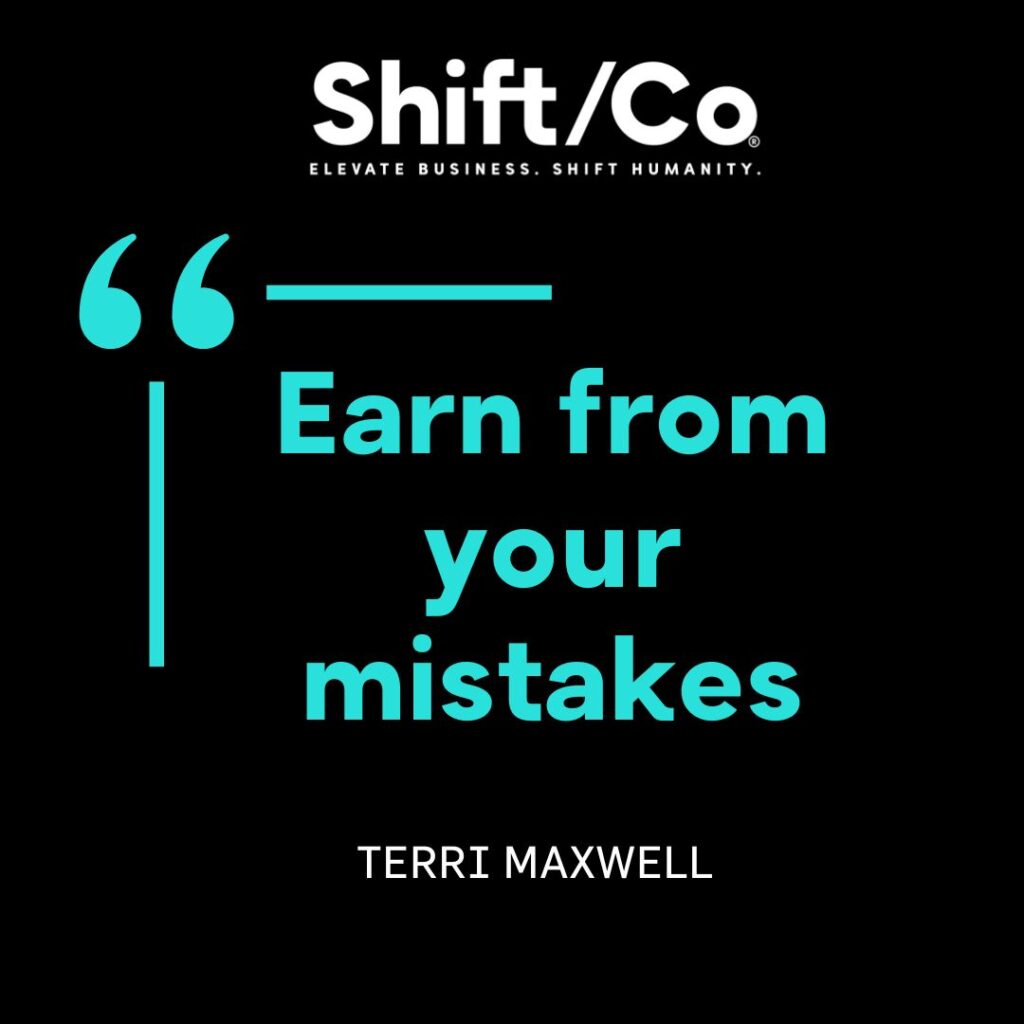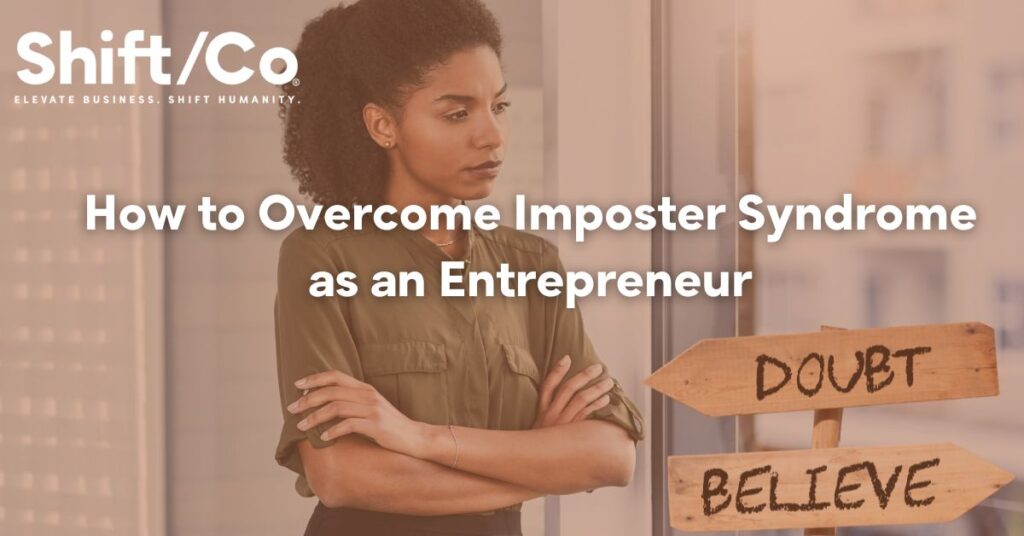Have you ever felt like you’re just faking it as an entrepreneur, despite all your hard work and accomplishments? You’re not alone. Many of us experience what’s called founder imposter syndrome – that nagging feeling that we’re not really cut out for this entrepreneurial gig. But fear not as we dive deep into what founder imposter syndrome is all about and how to overcome imposter syndrome.
Understanding Founder Imposter Syndrome
Founder imposter syndrome is like the unwelcome guest at the entrepreneurial party. It’s that voice in your head telling you that you’re not good enough, smart enough, or capable enough to succeed. It’s fueled by self-doubt and the fear of being exposed as a fraud, despite evidence to the contrary. Sound familiar? Believe it or not, we’ve all been there.
The Impact on Entrepreneurial Success
So, what’s the big deal with founder imposter syndrome anyway? Well, besides being a major buzzkill, it can hold you back in your entrepreneurial journey. It messes with your decision-making, makes you second-guess yourself, and can even sabotage your chances of consistent business growth. It can feel like a cement block tethered to you despite you doing all the external things that make a business successful.
Strategies for Overcoming Imposter Syndrome as an Entrepreneur
First things first, you’ve got to recognize that you’re not alone in this struggle. It can be difficult for entrepreneurs to admit since we are perceived to be brave and ‘have it all together’ right? Wrong. There is no shame in talking to other entrepreneurs about it, seek out mentors, and join supportive groups. Surround yourself with people who get it and can offer support and encouragement when you need it most. Having a strong support system can provide much-needed encouragement and validation during moments of self-doubt.

Next, it’s time to cut yourself some slack. Nobody’s perfect, and failure is just part of the game. Instead of beating yourself up over every little mistake, embrace it as an opportunity to learn and grow. It’ll make the journey a whole lot more enjoyable.
Building Resilience and Confidence
It’s time to flip the script on that negative self-talk. Instead of focusing on what you haven’t accomplished, pat yourself on the back on how far you’ve come. Practice self-compassion, cultivate a growth mindset, and remind yourself that you’re capable of greatness. Because let’s face it, you didn’t come this far to only come this far.
Whenever you catch yourself engaging in negative self-talk or doubting your abilities, challenge those thoughts head-on. We don’t encourage suppressing the emotions but rather leaning into them more to transmute it. Ask yourself if there’s any evidence to support them, and try to reframe them in a more positive light. For example, instead of thinking “I’m not qualified for this,” try reframing it as “I may not have all the answers, but I’m capable of figuring it out.”
Celebrate Your Failures
Failure is inevitable on the entrepreneurial journey, but it’s how you respond to it that matters. Society has us trained to believe failure is a horrible experience. We must unlearn that idea. Instead of viewing failure as a reflection of your worth, see it as an opportunity for growth and learning. Celebrate your failures as valuable lessons that will ultimately make you stronger and more resilient. Yes, it may sound cliché and it may feel that failure is the end of your journey. But the fact you decided to become a conscious entrepreneur and trailblaze your way to make good in the world already makes you a courageous force that can obliterate imposter syndrome with baby mindful steps.

Failure is not the end of your journey. It’s just a part of the learning feedback that benefits you because you are creating something that may not have existed, that may not have been solved yet. Embrace that feedback as you continue to tweak.
Set Boundaries and Prioritize Self-Care
As an entrepreneur, it’s easy to get caught up in the hustle and neglect your own well-being. However, prioritizing self-care is crucial for maintaining your mental and emotional health. Set boundaries around your work hours, make time for activities you enjoy, and don’t be afraid to say no to things that drain your energy.
Incorporating mindfulness and meditation practices into your daily routine can help quiet the negative chatter in your mind and provide a sense of calm and clarity. Taking just a few minutes each day to breathe deeply and focus on the present moment can work wonders for reducing feelings of imposterism.
All in all, founder imposter syndrome may be a tough nut to crack, but it’s not insurmountable. By recognizing it for what it is, seeking support when you need it, and cultivating resilience, confidence, and self-care, you can kick it to the curb and truly embrace your entrepreneurial mission. Remember, overcoming founder imposter syndrome is a journey, not a destination. So go forth, dream big, and remember – you’ve got this!
Learn how Shift/Co community and mentorship can help you overcome founder imposter syndrome and evolve as a leader!
FAQs
Can you provide more specific strategies or techniques for combating imposter syndrome, particularly tailored to conscious entrepreneurs?
Specific strategies tailored to combat imposter syndrome for conscious entrepreneurs can include mindfulness practices such as meditation and journaling to cultivate self-awareness and challenge negative thought patterns. Additionally, seeking support from mentors or joining a community of like-minded individuals can provide encouragement and perspective. Incorporating regular self-reflection sessions to acknowledge achievements and strengths can also help shift focus away from feelings of inadequacy.
Are there any case studies or examples of conscious entrepreneurs who have successfully overcome imposter syndrome, and if so, what were their methods or experiences?
Several conscious entrepreneurs have successfully overcome imposter syndrome through various methods and experiences. Sheli Bowman shared insights on overcoming imposter syndrome in pricing services. Bold Journey Magazine featured stories of artists, creatives, and entrepreneurs who conquered imposter syndrome. Additionally, entrepreneurs dealing with imposter syndrome may downplay achievements, attribute success externally, or compare constantly. Tuck alumni discussed imposter syndrome and resilience in entrepreneurship on the Sydcast podcast. Forbes highlighted the importance of a proactive approach to overcoming imposter syndrome in entrepreneurship, particularly for businesswomen.
How can conscious entrepreneurs differentiate between genuine feelings of inadequacy and imposter syndrome, and are there any warning signs to look out for to determine if they’re experiencing imposter syndrome?
Distinguishing between genuine feelings of inadequacy and imposter syndrome requires self-awareness and introspection. While genuine inadequacy may stem from objective shortcomings or lack of experience, imposter syndrome typically involves an irrational fear of being exposed as a fraud despite evidence of competence. Warning signs of imposter syndrome may include downplaying accomplishments, attributing success to luck or external factors, and constant comparison to others. Developing a keen awareness of one’s thoughts and emotions can help conscious entrepreneurs discern when imposter syndrome is at play and take proactive steps to address it.
Shift/Co is a global community dedicated to conscious business growth. We empower entrepreneurs to grow their businesses through innovative tools, expert coaching, and a supportive network. Our comprehensive approach includes personalized training, leadership development, and a collaborative environment, ensuring that members can achieve significant business growth while positively impacting the world. Join Shift/Co to elevate your business and be part of a movement that believes in doing good business better. For more information, visit Shift/Co.

